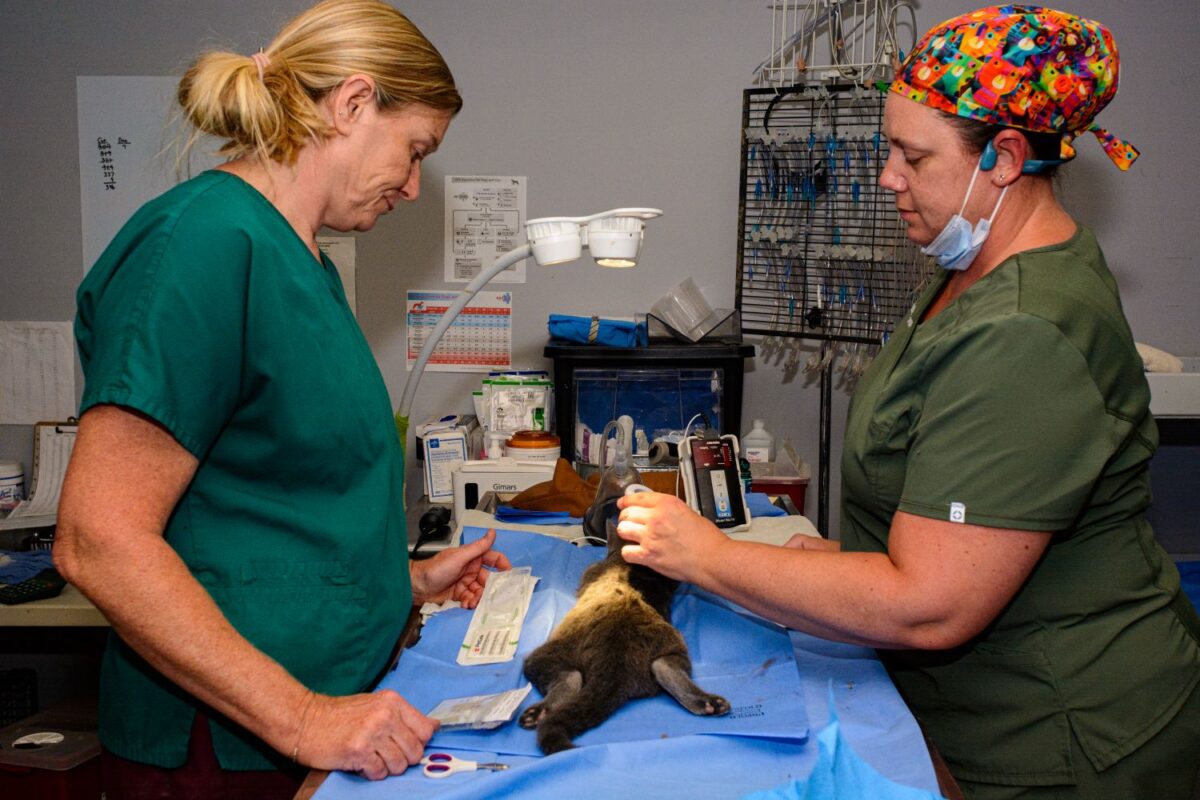It was all hands on deck as Joyce Luckett, clinic manager and co-founder of Animal Care Alliance, was suddenly called into the surgery room to monitor Blondie the cat.
As the waiting room crowd grew, veterinarian Dr. Stacy Kostiuk and her team needed to move on to care for yet another animal, so Luckett jumped in.
After a few minutes of monitoring Blondie, Luckett quickly had to remove medical equipment as Blondie began waking up from anesthesia from a sinus procedure.
After investigation, Blondie didn’t have a nasal polyp as initially expected based on her breathing issues, but she needed a sinus flush to address infection.
Luckett kept an eye on Blondie’s breathing, comforted her and eventually put her into a crate for safekeeping until Amy Smith could pick her up. Smith runs a fellow nonprofit, Whiskers Rescue & Foster at 120 E. Main St. in Richmond, and brings many strays to ACA for medical care.
Blondie’s procedure is one of the many frequent collaborations between Wayne County’s animal advocates and ACA to address some of the community’s animal welfare issues.
ACA initially began as a low-cost spay and neuter program to reduce crowding at existing animal shelters and the number of roaming pets killed on streets.
However, as the community’s animal needs have grown, ACA has expanded its scope of work and expanded into a new facility a few years ago at 1353 Abington Pike on Richmond’s southwest edge.
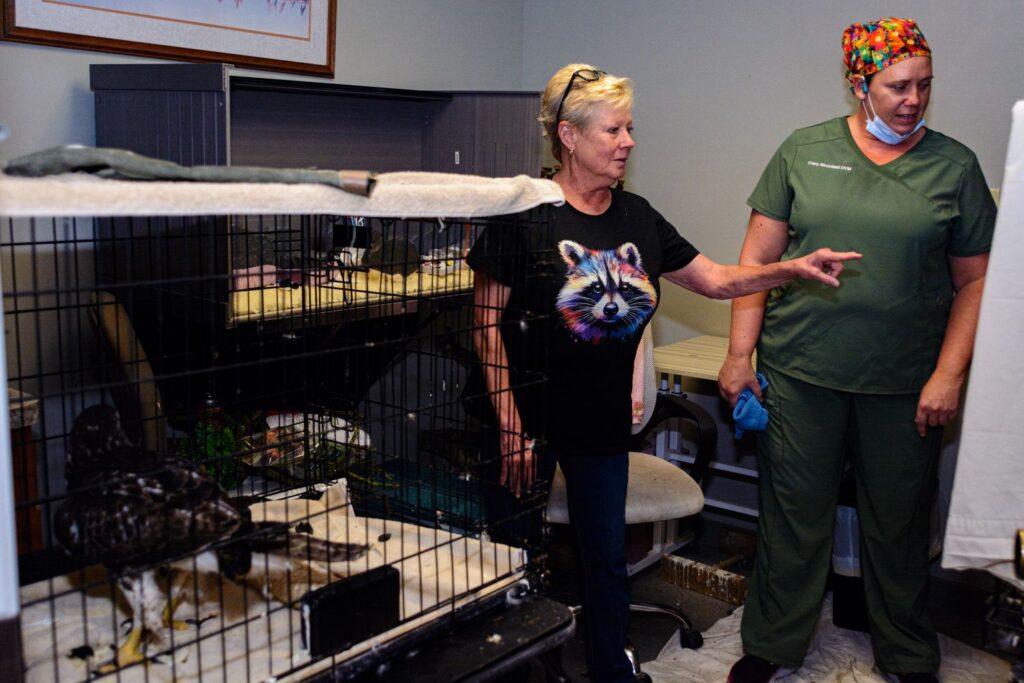
Veterinary challenges
Through their nonprofit organization, ACA staff offers all types of veterinary care for the public at a lower cost than private vet practices, ranging from vaccinations to wellness checks, illnesses and surgeries.
Uninformed community members sometimes diminish ACA’s discounted services, but their vets have the same training as other veterinary staff. They just happen to try to make care accessible to anyone.
Luckett said when ACA opened, some new clients were embarrassed that their pet hadn’t been vaccinated in five years, delaying the procedures because of cost.
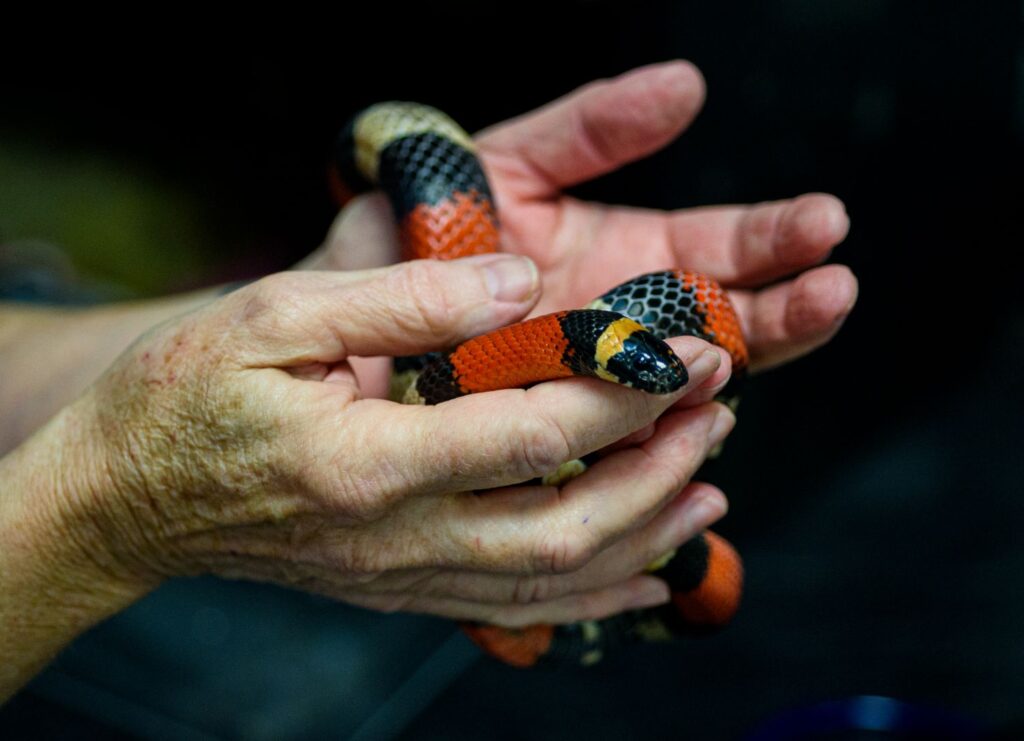
Owners wanted to take good care of their pets, Luckett said, but they couldn’t spend $500 to $600 per animal if they had three dogs, for instance.
In addition to lower fees, ACA offers payment plans for those needing to spread out bills.
However, ACA’s lower fees also mean higher demand in a county with 19% of residents in poverty and 30% of residents working but struggling to cover basic expenses, according to Wayne County Foundation statistics.
Relying on ACA sometimes means less immediate access for pet care. ACA does not offer weekend appointments or emergency services on nights or weekends. Appointments are needed for services beyond walk-in opportunities to see vet techs for nail trims, microchips, and flea and tick preventatives.
Kostiuk, ACA’s primary veterinarian, is available two days a week between 8:30 a.m. and 2:30 p.m. Luckett said Kostiuk puts 14 hours on her time card, but might donate an additional 20 sometimes while trying to make ACA more efficient.
“We just love her,” Luckett said. “Everybody is here because they love animals.”
Between Kostiuk’s shifts, ACA relies on four relief vets from the Indianapolis area. Those traveling vets’ services cost $1,000 per day, a necessary expense to address local care shortages.
While keeping ACA fees as low as possible for patients, raising the money to pay for its 17 full- and part-time staff roles, building expenses and feeding is an ongoing concern. Food for the resident animals alone costs more than $12,000 per year.
“Week to week, we sometimes worry about making payroll, but when we find four kittens in an alley, it’s hard to say no,” Luckett said.
To address veterinary shortages, ACA recently received what Luckett called a “fabulous” $50,000 grant from Wayne County Foundation. Having a new full-time veterinarian “will change life as we know it,” Luckett said.
Spay and neuter
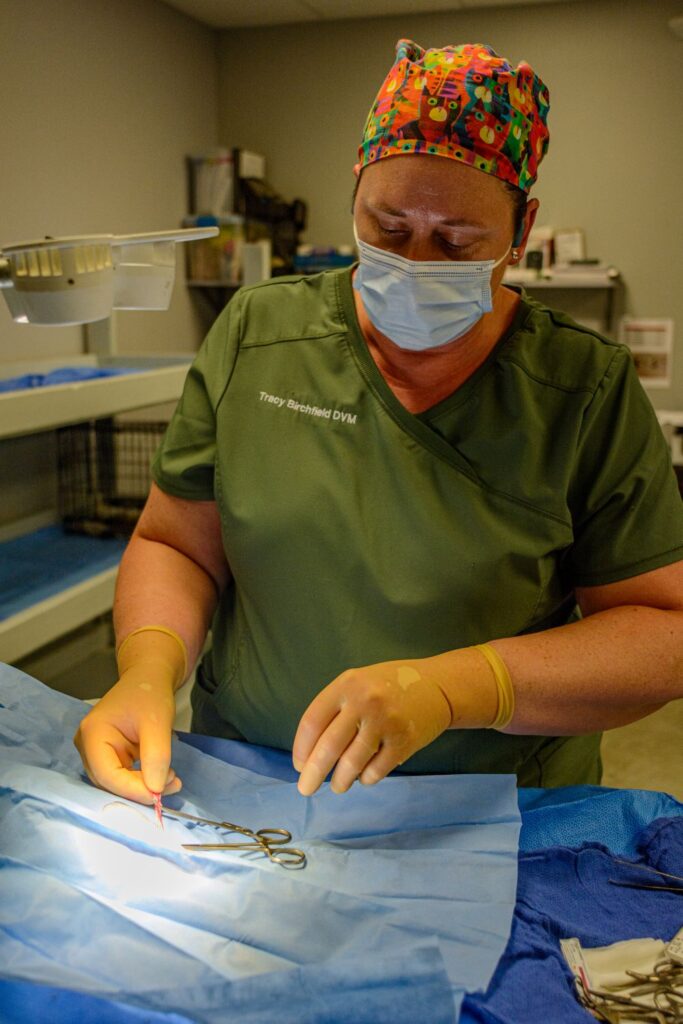
Luckett said one of the toughest challenges ACA faces is the overpopulation of animals in Richmond, especially kittens along the roadside.
Richmond’s Animal Welfare League shelter closed late last year, which puts additional housing pressures on organizations, including HELP the Animals, 2nd Chance Animal Rescue and Whiskers, and individual rescuers who foster as many strays as possible at their homes.
“Nobody has room for all of them,” Luckett said.
Thus, she believes the most humane work ACA can do is aggressive spay and neuter campaigns, often supported by local governments and businesses.
Kostiuk said in 2025, Wayne County subsidized one ACA spay/neuter dog clinic, helping to treat 11 dogs at an average amount of $110/dog. A May 2025 event sponsored by Hill’s Pet Nutrition saw 77 cats fixed, vaccinated and flea treated. The city of Richmond and county helped fund multiple events in 2024.
Pet adoptions
While emphasizing ACA is not a shelter and doesn’t have capacity to take on strays from the public, employees or volunteers have occasionally rescued animals in crisis.
Some pets ACA helps are less adoptable but capture the hearts of its staff. A large white rabbit was found with burns all over its body from resting in its own urine because it wasn’t let out of its hutch. After a few months of recovery, the bunny is doing much better and is a permanent resident behind the registration desk.
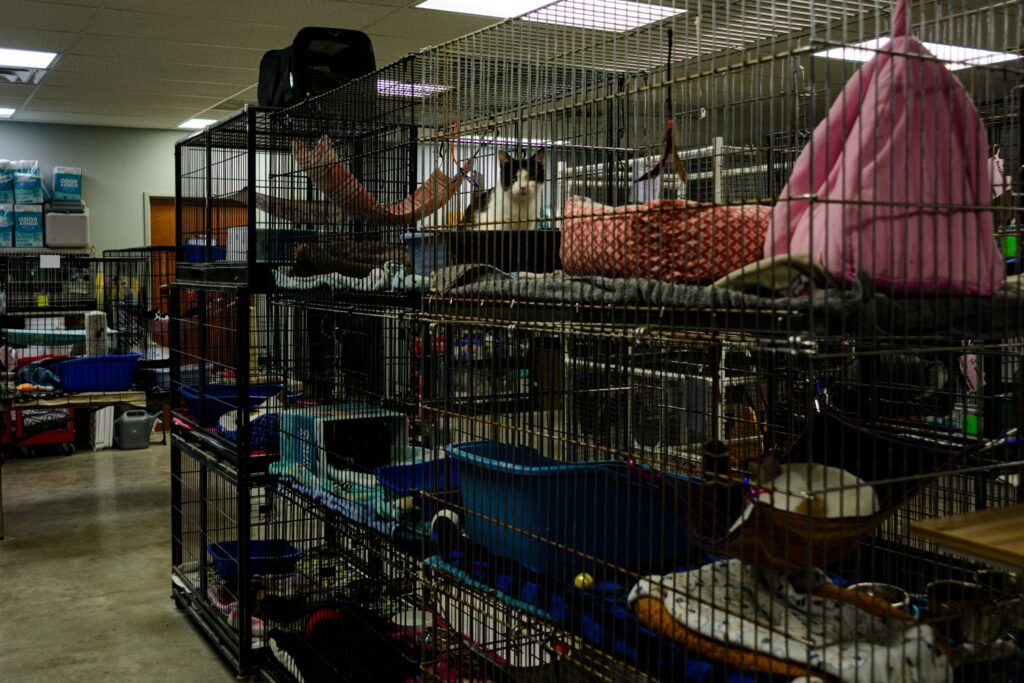
Caleigh Koechlein, 17, recently adopted Maple, who is her family’s second rescue cat, from ACA. She said she appreciated the opportunity to pet the cats and spend time with them as Maple emerged as the front-runner.
While Maple is a bit older than their previous rescue, Caleigh said Maple has been “a perfect fit” with her and her mom, Monica.
ACA’s staff helped the Koechleins prepare for Maple’s transition to their Richmond home and are always available for questions and help, Caleigh said.
“I love to spend time in the ‘cat room’ and give attention to those that need adopted to find peace after a tough day and give attention to cats that need to be loved,” Caleigh said.
Wildlife
Beyond caring for cats and dogs, ACA offers a unique regional resource for wildlife rehabilitation.
It’s the only organization within a multi-county area licensed by Indiana Department of Natural Resources and U.S. Fish and Wildlife Service to rehabilitate and/or care for orphaned and injured mammals, songbirds and raptors. She said ACA has a great relationship with Indiana’s conservation officers, and they expect to have helped close to 400 creatures by the end of this year.
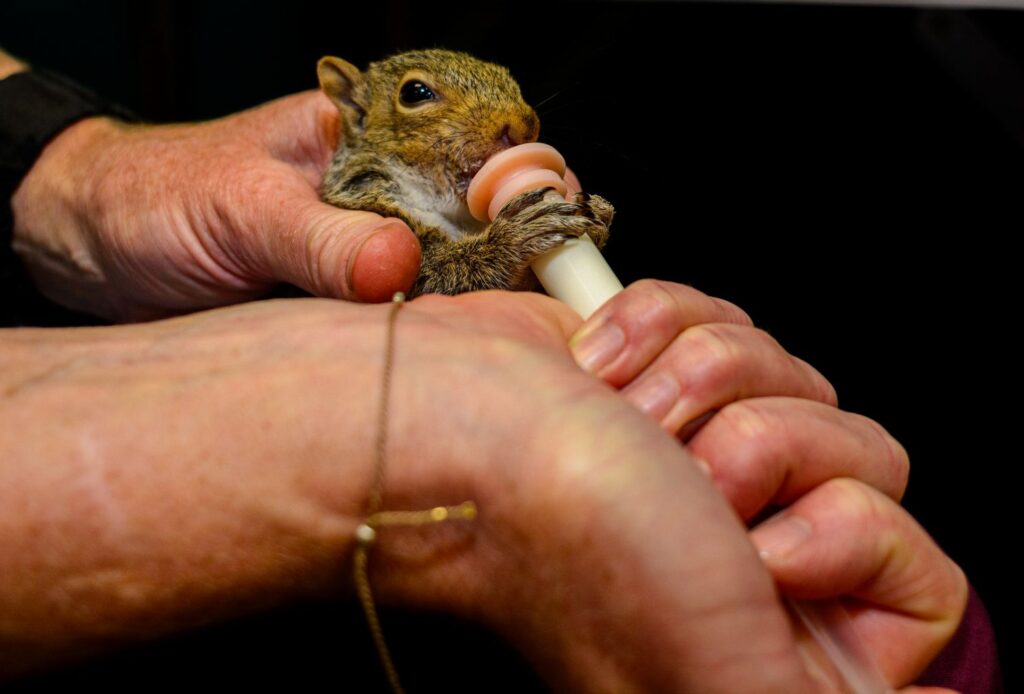
Luckett and her crew respond to many calls seeking instant care for animals from swans to owls who’ve been wounded or injured through accidents, shootings or other incidents. They offer rehabilitation and sometimes permanent homes for those creatures too medically fragile to roam free without being targeted by predators.
Luckett said ACA recently responded to multiple red-tailed hawks and an endangered short-eared owl that had been shot. It also cared for a bald eagle found in Fayette County that had been shot in the wing.
One success story was a black vulture that had been shot. After it was picked up at Towne House Village apartments in Richmond, the vulture recovered over the winter and was released at Middlefork Reservoir.
Luckett estimated caring for about 10 animals that have been shot over the past two years.
“If it’s that rampant with just the ones we see, how many don’t we see?” she asked.
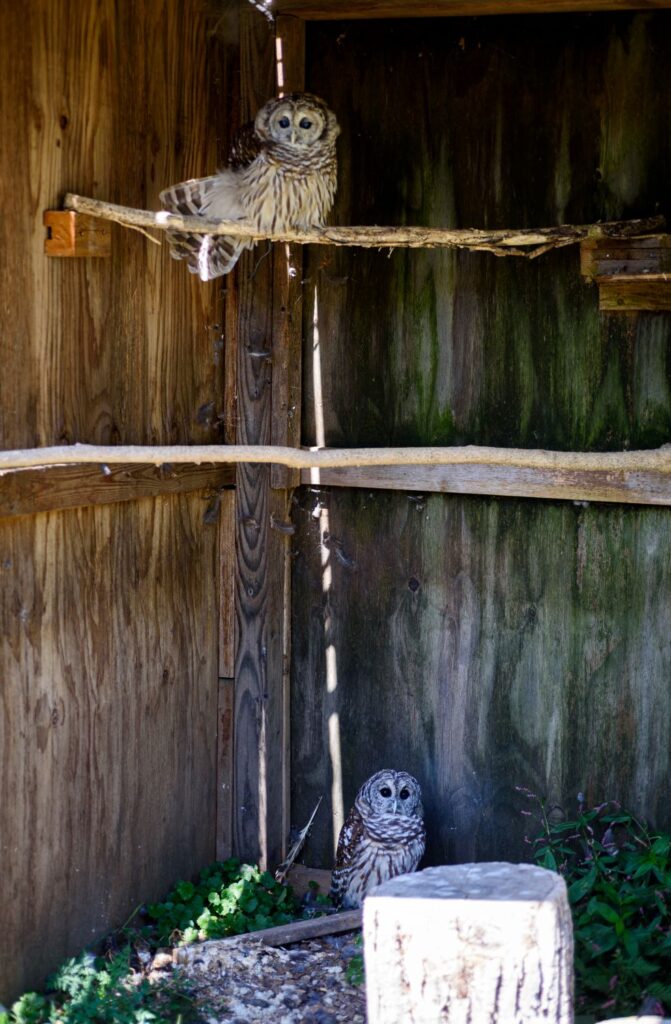
Whenever someone calls about a needed rescue, ACA will ask if they can help support its care with a donation, but the answer is almost always no, Luckett said.
Some of ACA’s permanent residents, such as a screech owl, raccoon, box turtle and snake, are used in ACA’s 30 to 40 annual wildlife education programs at venues such as Cope Environmental Center and elementary schools. When kids get to sit four feet from a red-tailed hawk, that inspires learning, said Luckett, who enjoys seeing their excitement for wildlife. She hopes those experiences foster a respect for those animals as well as nature and the environment in general.
“I feel we do a lot of good with those programs,” Luckett said.
One special success story Luckett recalls is a baby osprey found alone. It stayed at ACA until it was ready to be independent, then rescuers took it to Brookville Lake and watched it join a flock.
“Releases are the most wonderful thing,” Luckett said.
Luckett said she’s become more realistic after years of rescues. Years ago, the loss of an animal would bring her to tears, but now she’s more focused on preventing suffering.
“If you spend all your time crying, you don’t get around to helping anyone else,” Luckett said.
How to give, get care
For more information about Animal Care Alliance veterinary services, call 765-488-2444 or visit animalcarealliance.com.
In addition to financial contributions, ACA needs various items regularly, such as scoopable cat litter, Royal Canin canned kitten food, floor cleaner, bleach, copy paper and stamps. Donations can be delivered to ACA, 1353 Abington Pike, Richmond, between 9 a.m. and 4 p.m. weekdays, or shipped to ACA from its Amazon.com wish list.
ACA also seeks volunteers to help with tasks such as scooping litter and washing bowls.
A version of this article appeared in the October 8 2025 print edition of the Western Wayne News.

